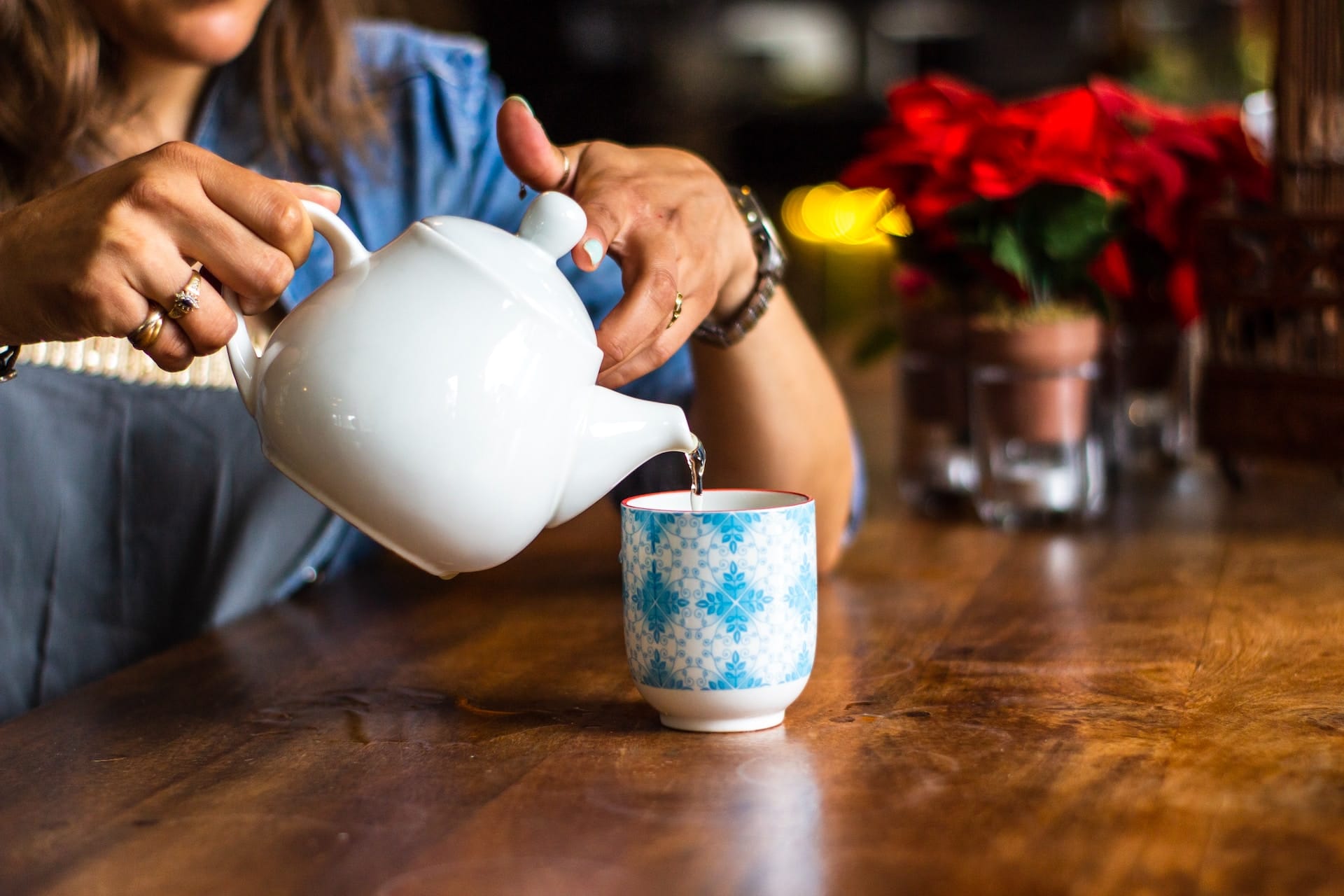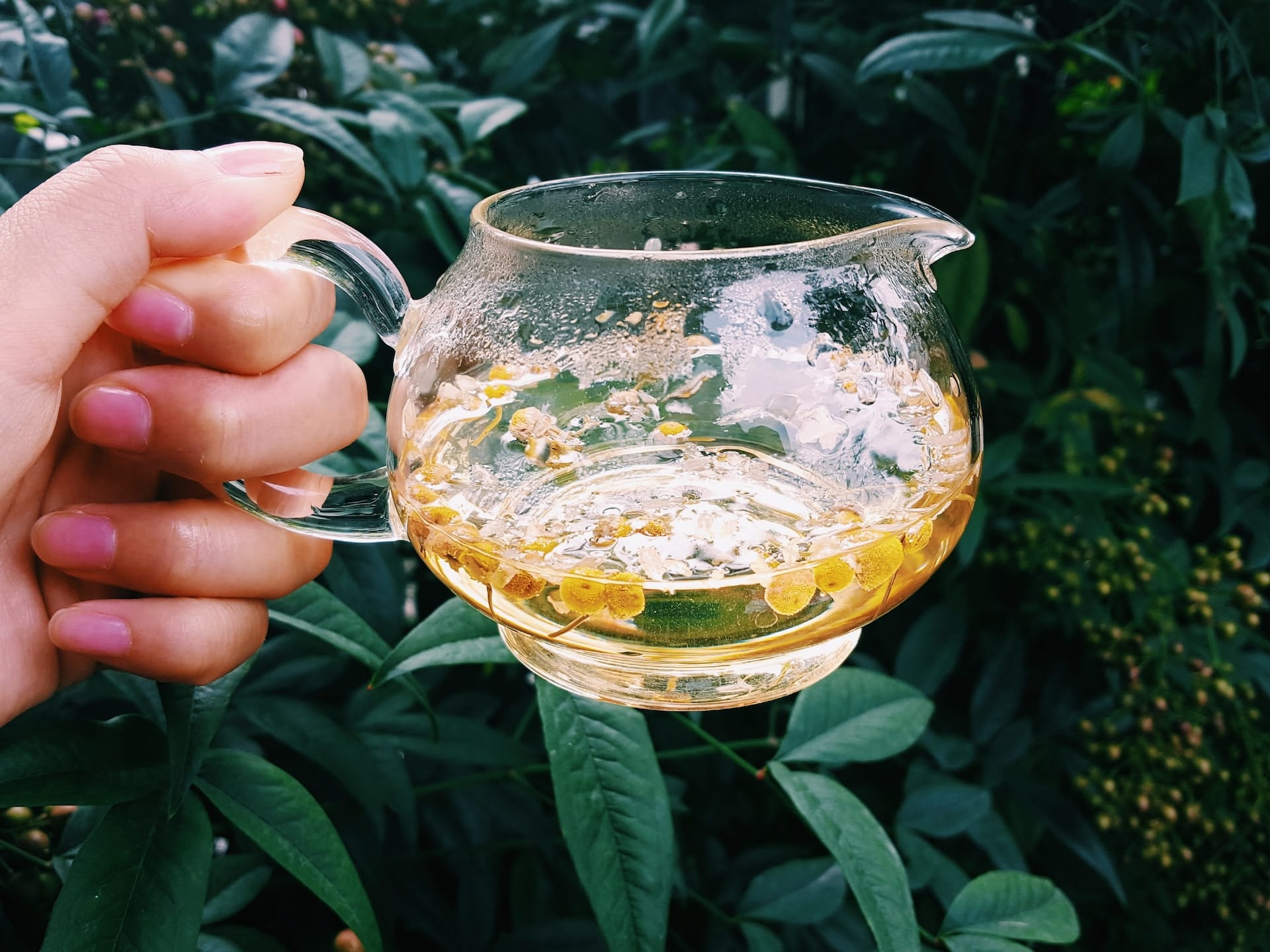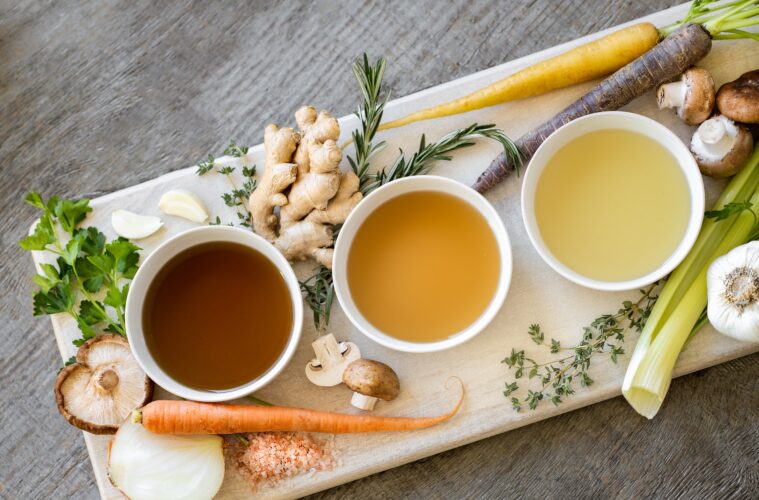Herbal teas are beverages from herbs, spices, flowers, and fruits steeped in hot water. This means herbal teas can come in various tastes and flavours and act as a tempting alternative to sugary beverages! Unlike traditional teas from the Camellia sinensis plant, herbal teas are often caffeine-free. They are also called “tisanes.” In addition to being delicious, some herbal teas have health-promoting properties. Herbal teas have been used as natural remedies for various ailments for hundreds of years. These herbal tea recipes are terrifically tasty and cosy. Once you start making them yourself, you’ll be sipping on these herbal teas every night!
Moroccan Mint Tea
Traditionally accessorised with spearmint, Moroccan Mint tea is sweet, caffeinated, and fresh, firing up the senses. If you want to play with your options, try this delicious green tea and accessorise it with traditional mint leaves! It tastes just as good.
Ingredients
- 1 Tablespoon gunpowder green tea leaves
- 1 large handful of spearmint leaves, washed (or other variety)
- 2 cups boiling water
- 3-4 Tablespoon sugar
How-To
- Bring water to a rolling boil.
- Remove from heat and add mint leaves.
- Steep for 3-5 minutes, depending on desired strength.
- Add sweetener, and enjoy!
Moroccan mint tea has several potential health benefits, including aiding digestion, providing antioxidant properties, boosting the immune system, promoting relaxation, and helping hydration.
Simple Lemon-Thyme Tea
Lemon tea is a classic congestion fighter. Accessorise it with fresh thyme, and you have a doubly effective cold combatant. (Thyme is antimicrobial, antibacterial, and antiviral.) Besides, this simple herbal tea tastes really good. Drink it in the morning to hydrate fully and decrease your appetite!

Herbal Teas | Herbal Tea Recipes
Ingredients
- 1 Tablespoon fresh thyme leaves
- 1 cup boiling water
- Cut one lemon wedge
- Honey, to sweeten
How-To
- Bring water to a rolling boil. Remove from heat and add thyme leaves. Let steep for 15-20 minutes.
- Remove thyme from the water and squeeze a lemon into the tea. Sweeten with honey, and enjoy!
Lemon-thyme tea aids in digestion, boosts the immune system, promotes respiratory health, provides relaxation, and promotes oral health due to its antibacterial properties.
Pineapple Sage Tea
Pineapple sage tea may aid digestion, provide antioxidant properties, and offer anti-inflammatory benefits. Sage herbal tea is extraordinary for you, and adding a little bit of pineapple to the mixture adds natural sweeteners and exciting flavours.
Ingredients
- 1 Pineapple
- 2 Tablespoon sage leaves
- 2 cups of water
How-To
- Bring water to a boil.
- Wash the pineapple and cut it into square pieces. Add pineapple peel to the boiling water. Let simmer for 3 minutes.
- Remove from heat entirely and place sage in water. Let steep for 3-5 minutes.
- Strain, pour in a cup, and serve!
Chamomile Tea
Chamomile tea is a popular herbal tea made from the flowers of the chamomile plant. It may promote relaxation, aid sleep, relieve digestive issues, offer anti-inflammatory properties, and boost the immune system due to its antioxidant content.

Herbal Teas | Herbal Tea Recipes
Ingredients
- One chamomile tea bag or one tablespoon of loose chamomile flowers
- 8-12 oz. of hot water
- Honey, lemon, or milk (optional)
How-To
- Boil water in a kettle or on the stove.
- Place a chamomile tea bag or a tablespoon of loose flowers in a cup.
- Pour the hot water over the tea bag or chamomile flowers into the cup.
- Let it steep for about 3 to 5 minutes. You can adjust the steeping time according to your taste preferences.
- Remove the tea bag or strain out the chamomile flowers from the cup.
- If desired, add a teaspoon of honey, a slice of lemon, or a splash of milk to enhance the flavour of the tea.
Enjoy your soothing chamomile tea!
Peppermint Tea
Peppermint tea can help to relieve digestive issues such as bloating, gas, and stomach cramps. It has a calming effect and may help to ease tension headaches and migraines.
Peppermint tea has a soothing effect on the throat and may help to relieve sore throat symptoms. Peppermint tea offers anti-inflammatory benefits and promotes relaxation due to its calming effect and reduced stress levels.
Ingredients
- Fresh peppermint leaves or dried peppermint leaves
- Water
- Optional: sweeteners of your choice, such as honey or sugar
How-To
- Bring a pot of water to a boil.
- While the water is heating up, wash the peppermint leaves if using fresh leaves.
- Once the water has boiled, remove it from the heat and let it cool for a few seconds to avoid burning the peppermint leaves.
- Place the peppermint leaves in a tea infuser or directly into the pot of hot water.
- Cover the pot and let the tea steep for 5-10 minutes.
- Remove the peppermint leaves and sweeten the tea with honey or sugar if desired.
Pour the tea into a cup and enjoy!
Note: You can adjust the number of peppermint leaves based on how strong you want the flavour to be. A general rule of thumb is to use one tablespoon of fresh leaves or one teaspoon of dried leaves per cup of water.
Lemon Balm Tea
Lemon balm, a calming herb, is a herbal tea made from the leaves of the lemon balm plant. It helps with everything from anxiety to indigestion and is a refreshing and healthy beverage with various potential health benefits.
Studies have shown that the herb is a potential treatment for many issues, from anxiety to menstrual symptoms. If you need to relieve stress, lemon balm can help lower anxiety and nervousness. Also, drinking lemon balm tea can help with insomnia. Compounds in lemon balm may alleviate gastrointestinal problems, such as bloating and indigestion.
Ingredients
- One tablespoon dry lemon balm leaves (or two tablespoons fresh leaves)
- 10 ounces boiling water
- Honey, sugar, agave (optional)
How-To
- Add the fresh herbs to a tea strainer or tea ball and place them in a standard-sized teacup.
- Bring water to a boil in temperature controlled kettle or a large pot on the stove.
- Pour the hot water into the teacup and allow the lemon balm leaves to steep for 5 to 10 minutes.
- Remove the tea strainer and sweeten it with honey, sugar, or agave if desired.
To Conclude
It is essential to use high-quality, organic herbs and steep them properly to make the most out of your herbal tea. The benefits of herbal tea depend entirely on the ingredients’ quality, which should be top-notch.
In conclusion, herbal tea is a delicious and healthy beverage that offers numerous health benefits. It’s a great alternative to sugary drinks and provides a variety of natural flavours and aromas. So why not brew a cup of your favourite herbal tea today and enjoy its many benefits!

